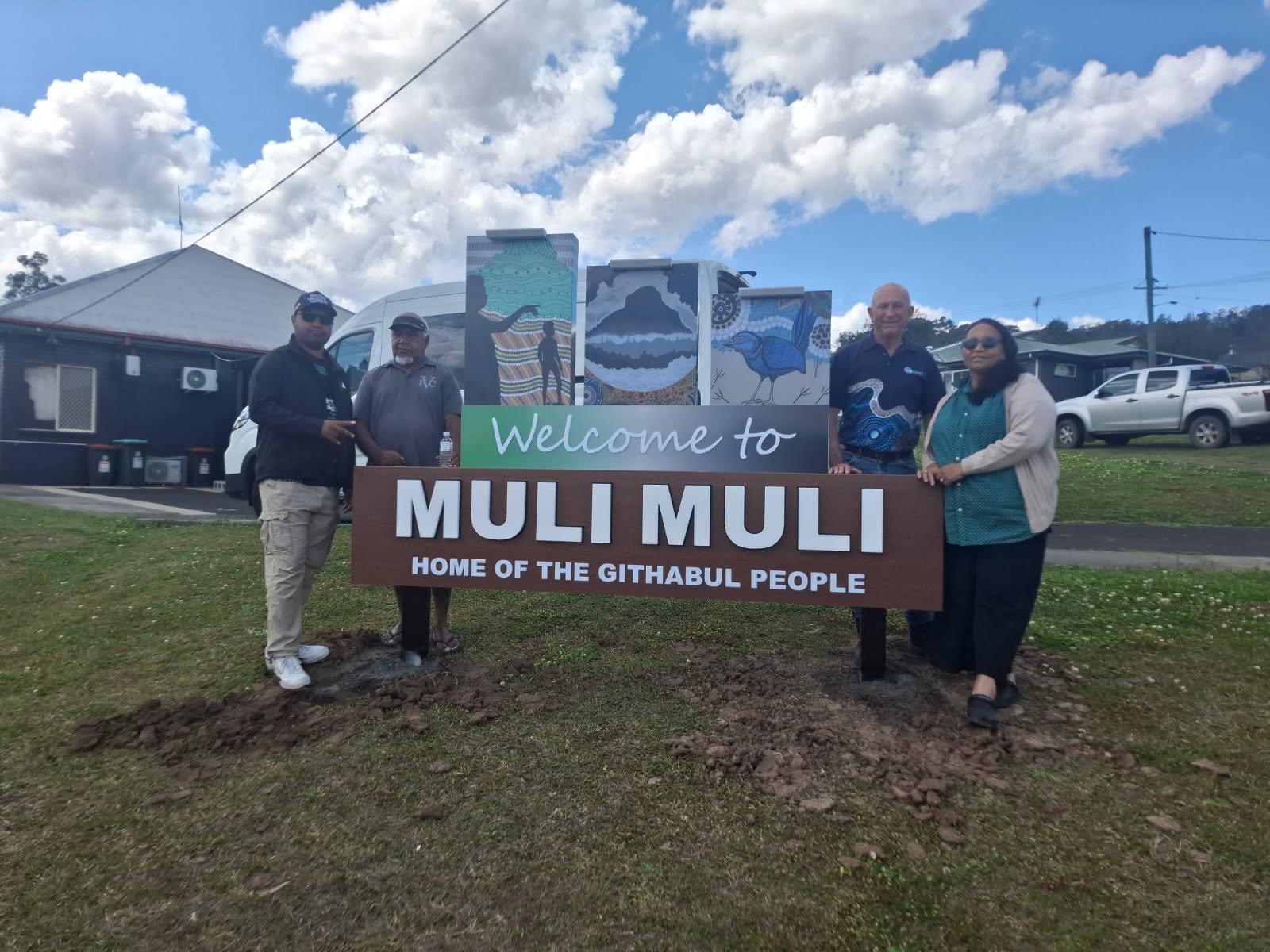Something we’ve noticed is that the most meaningful work often happens quietly, and without fanfare.
Back in April 2025, NGNU donated first-aid kits, a gas barbeque and playing jerseys for the local rugby team to every household in Muli Muli community. It wasn’t a lot, but it was something.
To the people of Muli Muli, these simple gestures meant care and joy for those that needed it. To us it represented a little more – an understanding of our corporate responsibility as an Aboriginal-owned business to listen and respond to community needs.
The Muli Muli Local Aboriginal Land Council
Muli Muli Local Aboriginal Land Council (LALC) is the statutory body established under the NSW Aboriginal Land Rights Act 1983 that holds title to community land at Muli Muli, a Githabul-Bundjalung settlement about 6kms between Woodenbong and Urbenville in northern NSW.
It manages housing (about 38 dwellings), community facilities such as the Githabul Youth Club, Health Post Hall and medical outreach space, and negotiates infrastructure upgrades and services on behalf of its roughly 200 residents.
Muli Muli isn’t a bustling metropolis but rather a small, close-knit community – one where basic resources make a significant impact.
Supporting Muli Muli
First Aid Kits
NGNU donated first-aid kits to every household, all 38 homes, in the Muli Muli community after residents identified a need for better emergency supplies.
The donation answered a request from Muli Muli residents for basic first-aid supplies that were lacking in most homes. Kits in every dwelling improve on-the-spot care in a remote community where ambulance response times can be lengthy. By boosting everyday safety and readiness for floods, fires or accidents, the project strengthens local resilience and health outcomes
Gas BBQ
NGNU donated and installed a new gas barbecue at the Muli Muli community hall so Sunday lunches could start again.
Sunday lunches are one of the few regular events where the whole community comes together to share food, news and yarn.
The old barbecue had broken beyond repair, leaving families without a safe way to cook for large groups. Restoring this facility strengthens social ties, supports healthy eating and helps keep community traditions alive.
Playing Jerseys
NGNU funded, designed and delivered new playing jerseys for the Muli Muli community rugby-league side so they could compete in the 2025 NSW Aboriginal Rugby League Knockout Carnival in Tamworth over the October long weekend.
The Koori Knockout is a ‘modern-day corroboree’ that brings together tens of thousands of Aboriginal people each year to celebrate sport, culture and kinship. Fielding a local team gives remote communities like Muli Muli visibility and pride while offering young players role models and potential pathways into higher-level rugby league. By supplying jerseys, NGNU eliminated a cost hurdle that can prevent participation, ensuring every eligible player could take the field and represent their community.
Beyond the transaction – why we do this work
NGNU was founded with the underlying principle that we could deliver success commercially for our clients while doing the same on Country for the communities we work with. We’ve spent the last 4 years challenging the idea of conventional ‘corporate social responsibility’ – because we don’t think it should be about ticking boxes or filling annual reports.
Our ethos is that corporate responsibility means listening and responding to what communities actually need. At Muli Muli, our support was borne of our existing relationship with the community there, having previously delivered flood recovery housing work in the area. Through the relationships and trust that we built through that initial project, these donations came from genuine conversations, a deep understanding of what would actually serve the community – along with a string desire to help the people on the ground.
What this says about how we work
We love what this community support says about our team – it’s an example of our values in action: Supporting communities beyond project scope.
As Aboriginal-owned firm, understanding unique challenges facing remote Aboriginal communities corporate responsibility is embedded in operations, not treated as a separate program
Sometimes the most important contributions are the simplest. Because when communities thrive, we all benefit.
